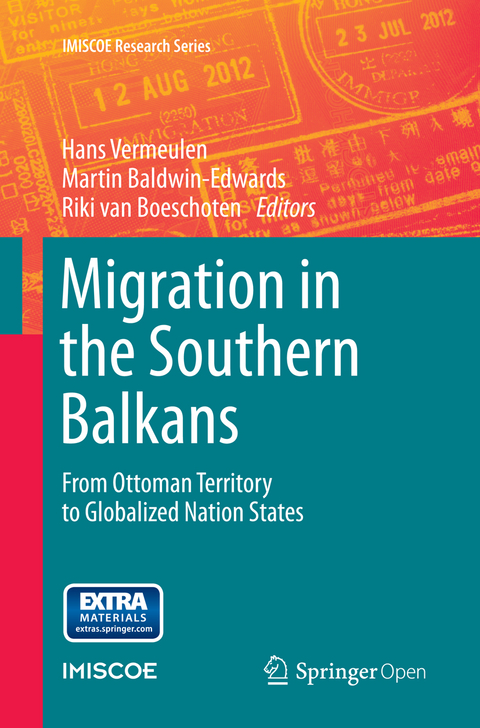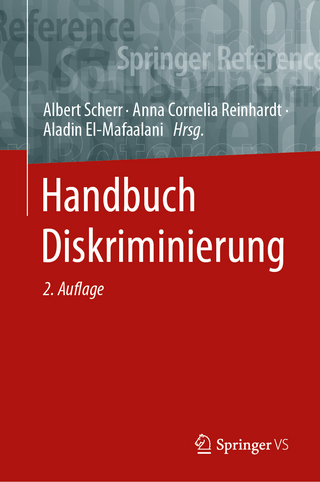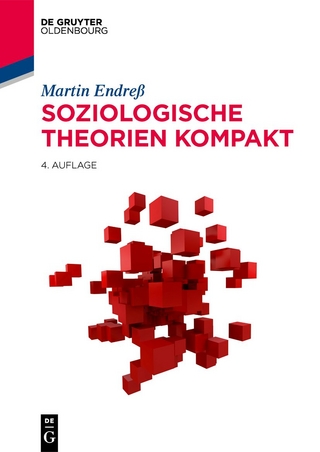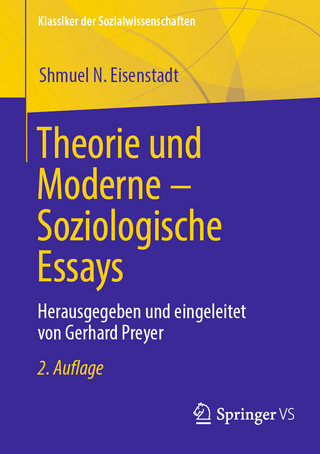
Migration in the Southern Balkans
Springer International Publishing (Verlag)
978-3-319-36636-4 (ISBN)
This open access book collects ten essays that look at intra-regional migration in the Southern Balkans from the late Ottoman period to the present. It examines forced as well as voluntary migrations and places these movements within their historical context, including ethnic cleansing, population exchanges, and demographic engineering in the service of nation-building as well as more recent labor migration due to globalization.
Inside, readers will find the work of international experts that cuts across national and disciplinary lines. This cross-cultural, comparative approach fully captures the complexity of this highly fractured, yet interconnected, region.
Coverage explores the role of population exchanges in the process of nation-building and irredentist policies in interwar Bulgaria, the story of Thracian refugees and their organizations in Bulgaria, the changing waves of migration from the Balkans to Turkey, Albanian immigrants in Greece, and the diminished importance of ethnic migration after the 1990s. In addition, the collection looks at such under-researched aspects of migration as memory, gender, and religion.
The field of migration studies in the Southern Balkans is still fragmented along national and disciplinary lines. Moreover, the study of forced and voluntary migrations is often separate with few interconnections. The essays collected in this book bring these different traditions together. This complete portrait will help readers gain deep insight and better understanding into the diverse migration flows and intercultural exchanges that have occurred in the Southern Balkans in the last two centuries.
Preface.- Note on transliteration.- 1. Introduction: Martin Baldwin-Edwards, Hans Vermeulen Riki and Van Boeschoten .- 2. The Balkan gurbet: Traditional patterns and new trends: Petko Hristov.- 3. Refugees as tools of irredentist policies: Raymond Detrez.- 4. Resettlement waves, historical memory and identity constructions: Nikolai Vukov.- 5. The changing waves of migration from the Balkans to Turkey: A historical account: Ahmet Içduygu and Deniz Sert.- 6. 'For us, migration is ordinary': Post-1989 labour migration from Bulgaria to Turkey: Ayse Parla.- 7. Albanian immigrants in the Greek city: spatial 'invisibility' and identity management as a strategy of adaptation: Ifigeneia Kokkali.- 8. Albanian seasonal work migration to Greece: a case of last resort?: Julie Vullnetari.- 9. Transnational mobility and the renegotiation of gender identities: Albanian and Bulgarian migrants in Greece: Riki Van Boeschoten.- 10. Labour migration and other forms of mobility between Bulgaria and Greece: The evolution of a cross-border migration system: Panos Hatziprokopiou and Eugenia Markova.
"The book is an excellent contribution to migration studies and Balkan studies. Given that it is an open access book, the reviewer's hope is enhanced that this impressive collection will receive its duly broad readership." (Cengiz Haksöz, Südosteuropa Journal of Politics and Society, Vol. 66 (4), December, 2018)
A welcome addition to the migration scholarship on this little-known, fragmented but globally important region. Taken together, the contributions offer a rich blend of history, politics, sociology and anthropology, alongside studies of memory, mobility and ethno-linguistic identity.
Russell King, University of Sussex and Malmö University
This well researched volume is awelcomed addition to our understanding of cross border migration over time in the southern Balkan region. The focus on the transformation of social identities is a testimony to the long term historical processes that underpin large scale population displacements which are far richer than mere 'migration crises'.
Eftihia Voutira, Professor, Anthropology of Forced Migration, Department of Balkan Slavic and Oriental Studies, University of Macedonia, Thessaloniki
Migration is a ubiquitous phenomenon in the modern world. This thoughtful book studies migration patterns and intercultural exchanges within the transnational region of the Southern Balkans against a deep historical background, offering fresh and alternative readings of the past two centuries. From the final decades of the multicultural Ottoman Empire, through the homogenizing efforts of several nation states, to new forms of ethnic and cultural diversity imposed through globalized networks, this importantcollection of original essays successfully brings together two separate fields within migration studies, those of forced and voluntary migrations. A genuinely transnational volume, both in its scholarly approach and the makeup of its contributors.
Maria Todorova, Gutgsell Professor of History, University of Illinois at Urbana-Champaign
| Erscheinungsdatum | 21.11.2016 |
|---|---|
| Reihe/Serie | IMISCOE Research Series |
| Zusatzinfo | XI, 211 p. 6 illus., 1 illus. in color. |
| Verlagsort | Cham |
| Sprache | englisch |
| Maße | 155 x 235 mm |
| Gewicht | 349 g |
| Themenwelt | Geisteswissenschaften ► Geschichte |
| Sozialwissenschaften ► Soziologie ► Allgemeine Soziologie | |
| Sozialwissenschaften ► Soziologie ► Spezielle Soziologien | |
| Technik ► Architektur | |
| Schlagworte | Complex ethnic mosaic • Cross-cultural, comparative apporach • Ethnic cleansing, population exchanges, demographi • Ethnic cleansing, population exchanges, demographic engineering • Ethnicity/nation state building • Globalized Nation States • Intra-regional and forced migration in the Souther • Intra-regional and forced migration in the Southern Balkans • Migration patterns after fall of Berlin Wall • Ottoman territory |
| ISBN-10 | 3-319-36636-X / 331936636X |
| ISBN-13 | 978-3-319-36636-4 / 9783319366364 |
| Zustand | Neuware |
| Informationen gemäß Produktsicherheitsverordnung (GPSR) | |
| Haben Sie eine Frage zum Produkt? |
aus dem Bereich


